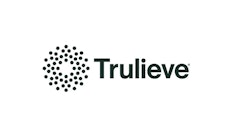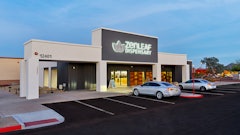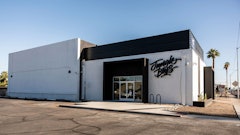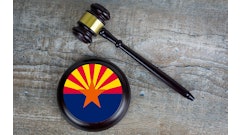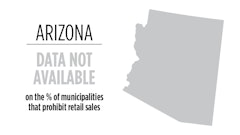
The infrastructure tied to awarding 26 highly sought-after social equity licenses in Arizona is still intact, at least for now.
Maricopa County Superior Court Judge Randall Warner dismissed a lawsuit challenging the state’s rules for issuing the adult-use cannabis retail licenses, ruling Tuesday that the rules published by the Arizona Department of Health Services (ADHS) satisfy provisions set forth by Proposition 207, the state’s 2020 voter-approved ballot measure for adult use.
Leaving leeway in the groundwork, Prop. 207 established that those licenses be awarded to applicants impacted by prohibition.
Warner said the law provided ADHS flexibility on how to write and implement rules, The Associated Press reported. As drafted, those rules “are reasonably designed to meet its objectives,” the judge concluded.
The licenses in question are tied to applicants who have recently lived in 87 qualifying ZIP codes, ADHS officials announced in October.
While ADHS officials did not release details about their residency requirement selection process—there are more than 500 ZIP codes in the state—the chosen areas appear heavily focused on or near Native American reservations, The Arizona Republic reported.
A limited license state, Arizona’s adult-use cannabis program allows for a total of 169 retail licenses. To be eligible for the 26 social equity licenses, applicants must meet three of four qualifying criteria, one of which is the residency requirement, set forth by the ADHS.
Overall, more than 1,500 applications were filed ahead of the mid-December 2021 deadline for the 26 social equity licenses.
The dismissed lawsuit, filed in part by the Greater Phoenix Urban League, said the rules are deficient, lacking provisions such as a prohibition against license transfers and a requirement that licensees’ expenditures and profits remain in their communities, the AP reported.
Currently, there is a bill in the Arizona Legislature that would prevent a social equity license holder from selling the license within 10 years, and if they do sell it, the license would have to go to another qualifying individual, not a corporation, Fox 10 Phoenix reported.
A random selection process to award the 26 social equity licenses is scheduled for spring 2022, according to ADHS, but there’s a possibility for delay if further litigation makes headway in the judicial system.














